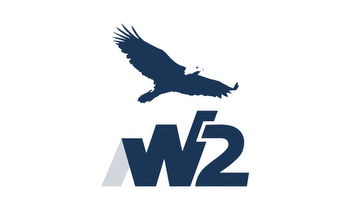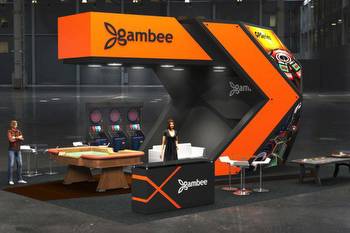10 Steps to Building A Stand-Out Gambling App
Most gambling apps essentially offer similar content. While they each have subtle differences, customers can find near-identical bets and games on any online sportsbook or casino. Knowing this, customers generally look for apps based on quality rather than content. If they want to bet on the Grand National, for example, the question is not which app will allow them to do this, but which one will offer the best experience. In other words: it is not necessarily what a gambling operator can offer a customer that matters, but how they offer it.
This was the message shared by Philippe Joos (Head of Product, Napoleon Games & Casino) and Dave Pilgrim (Snr. Product Manager, Sky Betting & Gaming) in a recent Applause webinar. Joos and Pilgrim went on to explain that app quality is only becoming more important to customers in light of the growing number of regulations entering the market. The more hoops customers have to jump through by law — such as affordability, identification and other KYC checks — the less patience they have when an app doesn’t work optimally.
Because all gambling apps require customers to undergo the same formalities, it is very easy for customers to directly compare their experiences. If one app takes longer to run pre-payout account verification checks than another, for example, customers will be quick to notice. For Joos and Pilgrim, having your competitors bound by the same restrictions as you is an advantage. As Pilgrim explained, if you can take a process that everyone else is doing and make it better, you’re already ahead of the game.
So, how do two of the biggest names in gambling approach common challenges in a way that sets them apart from their competitors? Joos and Pilgrim shared their 10 steps for building a gambling app that stands out from the crowd.
1. Anticipate regulations
“If you’ve anticipated something, then you’re in control of the planning of it. If you haven’t and find yourself suddenly needing to adapt, then you’re on the backfoot before you’ve even started,” Pilgrim said. He believes that the first step to building exceptional digital experiences in gambling is to anticipate incoming legislative requirements. This may mean preparing for regulatory changes that have already been announced or that appear imminent. This way, gambling operators avoid having to abandon their product development timelines — and even sacrifice planned feature launches — in order to accommodate mandatory changes at short notice.
2. Have your lawyer communicate directly with product owners
The hardest part of responding to changes in the law, said Joos, is translating the new requirements into product features. For example, if the law states that customers need to be reminded to take a break every 30 minutes, how can you enforce this from a product perspective? Would you send them a push notification as a reminder, have a yes/no popup notification ask if they wish to continue, or stop the game entirely? Making sure you have a good lawyer that knows how to communicate with product owners is key. Besides ensuring that a product meets requirements, this will avoid product owners over-restricting customers where they need not have.
3. Bake in safer gambling
The best online gambling experiences come from operators that make safer gambling an intrinsic part of how they do business, building each feature through the lens of protecting customer safety. By baking in measures, operators can move quickly in the knowledge that safer gambling is already accounted for, freeing up more time to concentrate on other priorities, like providing a stellar online gambling experience. Moreover, customers actively seek out gambling apps that take pains to keep them safe. According to a recent internal study by Napoleon Games, said Joos, platform safety and trustworthiness are key factors influencing young bettors’ choice of gambling app.
4. Build a modular tech stack
Online gambling products need to be agile if they are to work in an ever-changing, global regulatory environment. The key, according to Pilgrim, is “to have a tech stack that allows you to create features in a modular way so that you can adapt or gate off them for different markets.” In other words, operators should design their technology in such a way that they have a core product and can pick and choose additional features from a wider pool. This has two advantages for gambling companies: first, developers can adapt individual features (e.g. for new regulations) without worrying about interdependencies; second, they can easily add or detract said features depending on the needs of different customer groups.
5. Localise beyond translation
Modular software is particularly helpful for localisation. For example, if certain casino games are legal in some countries but not others, gambling operators could gate on and off groups of games as required. The same goes for trends and tastes; while build-a-bet services are popular in the UK, they haven’t taken off so well in Belgium, Joos said. When investing in customer research to surface local attitudes, Joos recommends working with native speakers. As asking questions in a certain way can impact the answer given, making sure survey questions are asked idiomatically and sensitive to local norms is essential if gambing operators are to avoid drawing the wrong conclusions when aggregating response data.
6. Listen to the customer
Pilgrim believes that gambling operators should take investing in customer research very seriously. “Some of our greatest innovations over the years came from listening to the customer,” said Pilgrim. One example occurred when Sky Betting & Gaming first developed their MyBets feature, which allows customers to check the position of their bets and cash out. As part of a survey on customer betting behaviour on weekends, Sky Betting coincidently discovered that customers were using the Sky Bet app to place a bet, closing the app and then heading over to a competitor, livescore.com, for cash out. This signalled to Pilgrim’s team that there must be an issue with their MyBets feature.
7. Gauge when less is more
A decade ago, each time a sportsbook operator offered a bet not available anywhere else — like bets on yellow cards or corners in football — it was a point of differentiation from their competitors. Today, the industry has reached a saturation point; all operators offer a set of derivatives so comprehensive that customers can scroll down an event page without reaching the bottom. It’s a similar story in online casino, where any one operator can have over 1000 games. As retail studies have shown, giving customers too many options actually reduces engagement. If the market continues in this direction, gambling operators need to consider whether removing some markets may actually result in a positive uplift even if it means losing those markets’ stakes.
8. Get onboarding right
“If a user registers for Netflix and then immediately tries to register for our gambling app, the process will seem really long,” said Joos. Onboarding customers is a challenge for any regulated market and gambling is no exception. Operators like Sky Betting and Gaming used to see the onboarding process as a chance to gather information on customers, asking questions like their favourite sports team. Not any more. In today’s age of KYC checks, even providing the bare minimum information can be a chore for customers. To learn how to minimise abandonment and increase conversion, check out Applause’s guide to optimising user onboarding in online gambling.
9. Facilitate discovery
With so many markets to choose from, encouraging customers to filter rather than scroll avoids them leaving the app because they don’t see any bets or games that interest them. This is particularly true in the age of mobile, as smaller screen sizes make displaying multiple options difficult. By grouping markets together, gambling operators also have the opportunity to personalise recommendations, only serving customers with the markets they are interested in or ordering them differently on the page. Considering that many operators offer the same bets and games, CX factors like quick navigation and relevant recommendations will become increasingly important points of differentiation.
10. Be honest about what an MVP looks like
In a fast-moving industry, operators need to avoid spending so long shipping a feature that it’s outdated by the time it’s shipped. For Pilgrim, building products all comes down to one question: “Can we get 80% of our value from doing 20% of the tech effort?” If there is a complex part of the software that you could do without while still delivering most of the value of the product, Pilgrim advises to scrap it. This doesn’t mean shipping a product that isn’t up to it, but asking honestly: what do we need and what could we do without?
Whether your company needs to ensure online gambling works around borders, validate a new betting feature or identify transaction issues with specific payment methods, Applause can help. Our real-world testing solution gives online casinos and sportsbooks the ability to validate their experiences with real bettors and test their geo-fencing technologies. Learn more at https://www.applause.com/online-gambling.


































